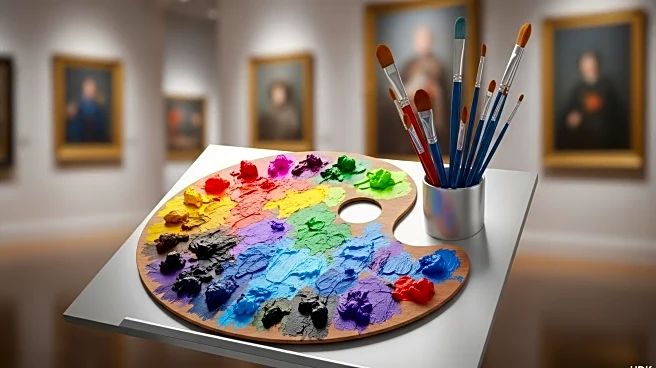What is the story about?
What's Happening?
Suzanne Jackson, an influential artist known for her contributions to African American art, is being honored with her first major museum retrospective at the San Francisco Museum of Modern Art (SFMOMA). The exhibition, titled 'Suzanne Jackson: What Is Love,' showcases over 80 works spanning her diverse career in painting, sculpture, dance, and theater design. Co-organized with the Walker Art Center in Minneapolis, the retrospective will travel to the Museum of Fine Arts Boston in 2026. Jackson's career began in Los Angeles, where she ran Gallery 32, a space that highlighted African American women artists. Her work is deeply influenced by her upbringing in Fairbanks, Alaska, and her studies in San Francisco, where she majored in painting and minored in drama and dance.
Why It's Important?
The retrospective at SFMOMA marks a significant recognition of Suzanne Jackson's contributions to the art world, particularly in promoting African American artists. Her work has been instrumental in shaping the narrative around African American art and culture, providing a platform for underrepresented voices. This exhibition not only celebrates Jackson's artistic achievements but also highlights the importance of diversity and representation in the arts. It serves as a reminder of the historical and cultural impact of African American artists and the need for continued support and recognition in major art institutions.
What's Next?
Following its debut at SFMOMA, the exhibition will travel to the Walker Art Center in Minneapolis and the Museum of Fine Arts Boston, allowing a broader audience to engage with Jackson's work. This retrospective may inspire other institutions to explore and celebrate the contributions of African American artists, potentially leading to more exhibitions and retrospectives that highlight diverse voices in the art world.
Beyond the Headlines
Suzanne Jackson's retrospective not only celebrates her artistic achievements but also underscores the broader cultural and historical significance of African American art. Her work reflects a lifelong commitment to environmentalism and social justice, themes that resonate deeply in today's cultural landscape. The exhibition provides an opportunity to reflect on the intersection of art, activism, and community engagement, encouraging dialogue around these critical issues.















